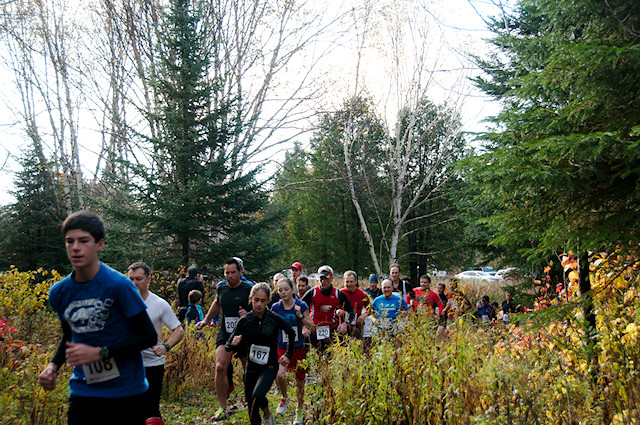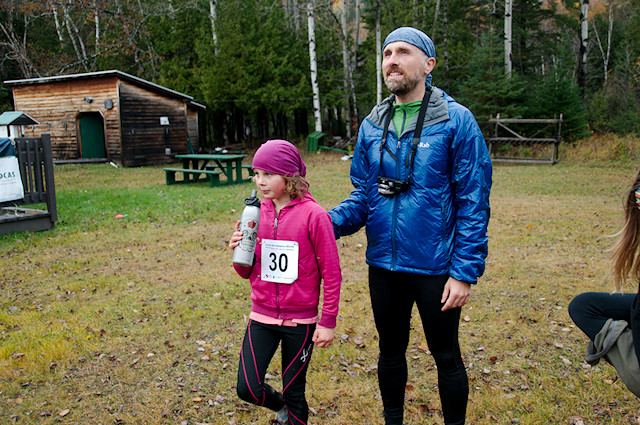Every single one of us is an athlete, whether we like it or not - some of us are just not willing to admit it yet.
I recently decided to take a break from my usual workout routine and try a different approach for a while. It is not that what I had been doing wasn't good or wasn't working. I simply wanted to change things up and to round out my fitness a little.
I bought a book called The Big Book of Endurance Training and Racing by Phil Maffetone; I can honestly say it has changed my life. I love it when books do that! Looking back, I don't know exactly what prompted me to buy it, but I am grateful for it. This post isn't intended to be a book review, but the ideas in it are very interesting and merit some discussion.

To (briefly) summarize the book's premise:
- In order to have good endurance, we need to optimize the body's fat burning abilities (as opposed to sugar) because fat is a very long-running fuel source. Due to our largely anaerobic lifestyles, most of us rely too much on sugar burning during our endurance activities.
- Endurance training is done slow, much slower than you would think, and by doing it slow you become fast. By building a solid aerobic base and building an efficient aerobic (fat burning) system, you will become faster because your body will be able to perform more efficiently at the same intensity.
- Our society is largely anaerobic: enamored with the notion that doing more, going harder, and going faster is what it takes to get results. This mindset heads us down the wrong path however, leading to injury, burn-out, stress, poor health, and decreased performance. That doesn't mean that there are times when we shouldn't push ourselves or go anaerobic, but that for endurance, the majority of training should be low intensity (fat burning).
- Physical endurance has a direct correlation with whole-body health. Training for endurance doesn't just happen during the workout, it happens when you eat, when you sleep, and how you manage stress.
- Physical training needs to be motivating and sustainable, and increase health and fitness over time, not break you down, burn you out or make you hate your sport.
- All physical training imposes stress on the body. Life imposes stress on the body. Too much stress will negatively impact health and performance - no matter where it comes from. Training for performance is actually all about stress management: keeping the stress of physical training and life in check so that it does not cause the body to break down.
I don't agree with everything he says in the book (i.e. his diet recommendations - we are pretty set in our ways on that one), but I found this to be one of the more refreshing fitness books I have read in a long time. A book that is wholistic in it's approach to endurance training; that causes you to look at your whole life in relation to performance rather than just your training sessions.

Reading this book has given me time to reflect on my own life and fitness practices. Namely, that the things I enjoy doing (and am continually trying to figure out ways to do more of - hence the reason for this blog) are largely endurance oriented activities: hiking, backpacking, backcountry skiing, etc. That is to say that while muscle strength is involved in supporting those activities, they are - for the most part - primarily endurance activities.
Up until this point, I had never really given a lot of thought to training for endurance. I had never really considered myself an endurance athlete - I was just a guy who wanted to keep in shape so that I could keep up with my kids and live my life to its fullest, not just suffer through it - especially as I get older. I have spent more time with various forms of strength training than I have doing anything endurance oriented.
Then I got to the part of the book where Phil Maffetone talks about how he successfully uses the same endurance training principles for other professions - not just triathletes - like race car drivers, fighter pilots, and music performers. That's when something clicked in my brain: this means we are all endurance athletes.
Moms with young kids. Truck drivers. Office workers putting-in overtime. Guys sitting on the couch blogging. We all are required to be at the top-of-our-game for extended periods of time.Life is a marathon like no other, why haven't I been training for it?
The end result has been a change in focus for my physical training. Actually, not so much a change in focus, but a tighter focus. I am coming to terms with this idea that life is an endurance sport and I am an endurance athlete. Whether it be endurance to perform at my peak for a multi-day backpacking trip, or to push through a difficult work week. The end result is the same, I don't just want to survive, I want to thrive and the key is to ensure I am training for it in a sustainable fashion.
For some great whole-health and endurance training resources, I highly recommend visiting Dr. Steve Gangemi's site The Sock Doc. Dr. Gangemi is an online friend of mine who contributes articles from time-to-time on Toe Salad.

Comments
I read that book a little
I read that book a little over a year ago. I did the two week test diet and wow! I also have done nothing but his aerobic training. I'm now 7 minutes faster on my five mile trail route than when I started all at the same heart rate.
http://www.facebook.com/photo.php?fbid=10151247058915859&set=o.502374639...
Hey Steve, thanks for sharing
Hey Steve, thanks for sharing that link, that is a great success story!
There is definitely a
There is definitely a different kind of zen in training for endurance as opposed to the shorter high intensity. I played soccer and ran track through college and have enjoyed both forms, but come to really love "going the distance." Last year I trained for a half marathon-I was post 2nd baby and turning 30 and insanely sleep deprived, I just didn't have it in me to do sprints, (not even if chased) slow was the only pace I could muster. With the stress of a toddler and baby (and living with my mo-in-law) I just started increasing my distance(instead of xanax:)...I'd throw them in the jogger with snacks and an Ipad and run til I found that zen feeling -a happy fatigue, turn around, head home just in time to be completely depleted...and finally more calm. It was my drug. And really so interesting to feel the work up to each longer run, push through the last run's mileage then add a few more. It's amazing how the body adapts. By pushing the boundaries only then do they recede. Since having kids most of my days feel like "endurance days," keeping them happy, fed, occupied, etc. only I don't get that runners high--other joys though. But this reminds me that I too, don't just want to survive, but to thrive--no matter how ordinary the endeavor or task may seem. To push through the boundaries. Thanks for the post.
Great post Damien. Love the
Great post Damien. Love the reflection and transference into life. And I totally agree. The greatest results I have ever seen in my fitness has been over the last 4-5 years, once I honed in a "tighter focus" on progressive steps, starting slow. It's turned into a non-stop upward curve since. And we truly do get "faster" as we go. The irony is it still feels kind of slow to us. ; ) Like we are continuing to truck along in our progress. Amazingly less stress associated with following such an approach.
Yet we are still inundated with "SPRINT!!" as the go to way to make any progress in our lives, whether in fitness, health, career, family or the success of any other aspect of our lives.
Of course that doesn't mean "sprinting" doesn't serve a purpose... just that the OVERALL picture is in fact more of an endurance "event". And if we can embrace that, the results we see can be quite startling.
Again, great post! Thanks for sharing.
This post piqued my interest
This post piqued my interest so I added the book to my birthday list and am just starting to get into it. I'd be interested to hear more about your current approach to fitness/training and how you're incorporating the principles of the book. I enjoy reading your thoughts on health and fitness, and really like the concept of 'integration.'
Cheers,
Kim